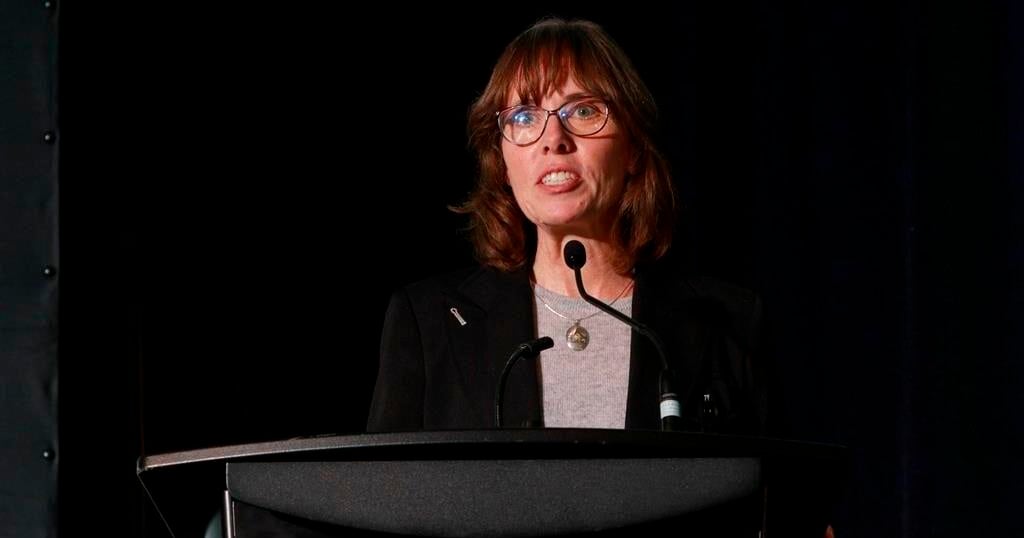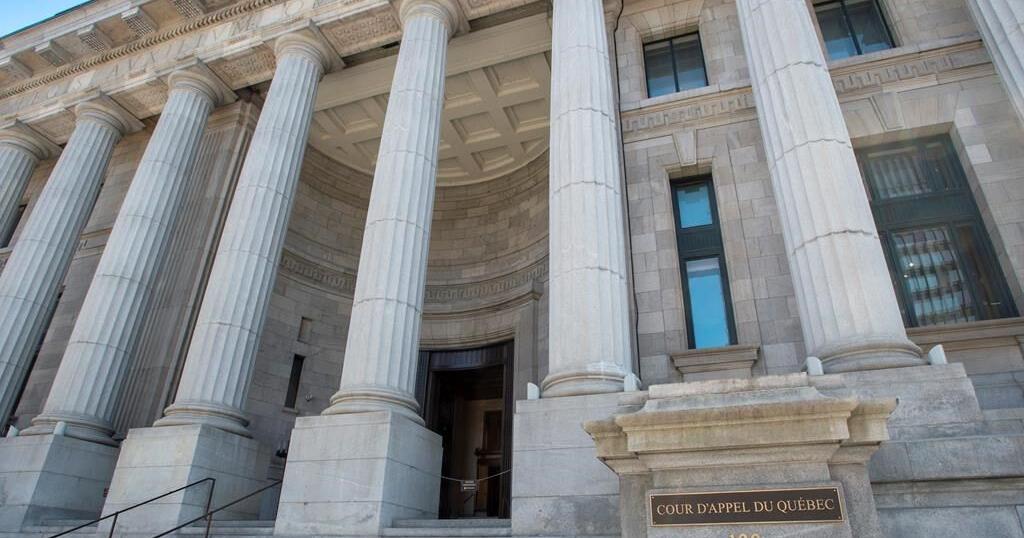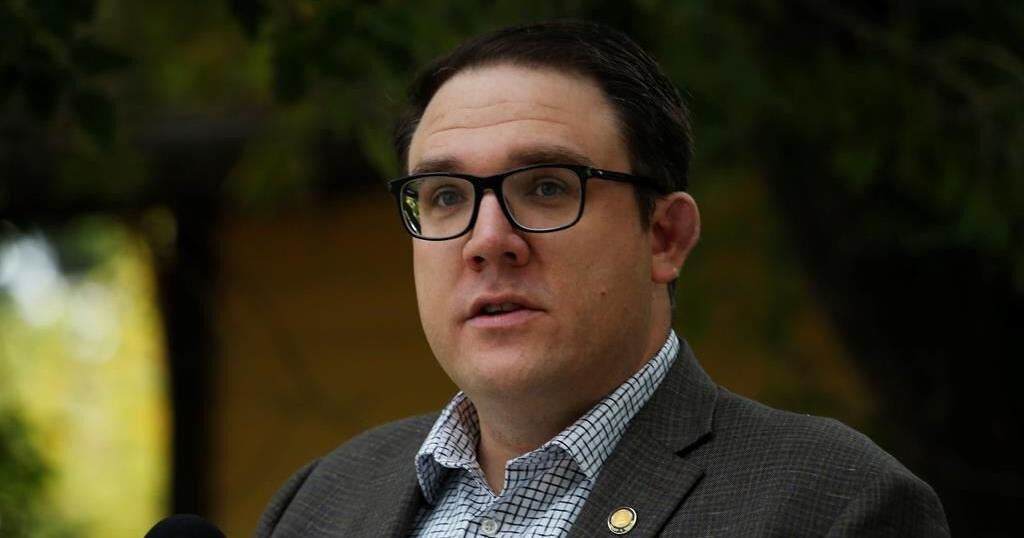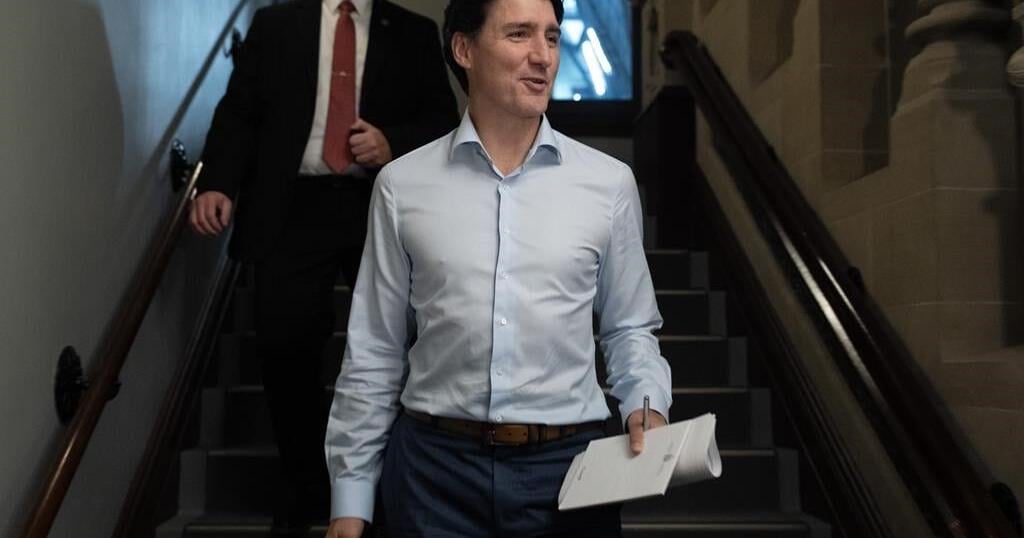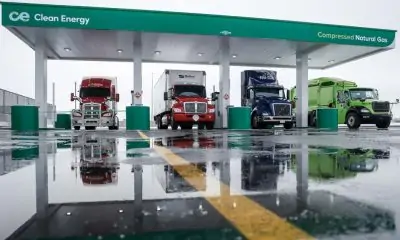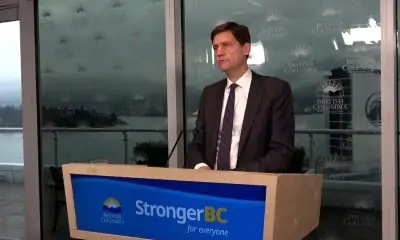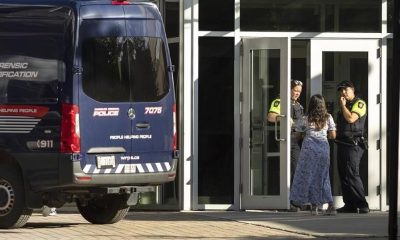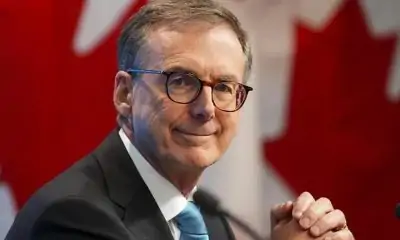VICTORIA – The leaders of British Columbia’s New Democrats and B.C. Conservatives have received the cold shoulder after looking to start minority government talks with the Greens following last weekend’s inconclusive election result, party leader Sonia Furstenau said Wednesday.
She said she spoke briefly with NDP Leader David Eby on Wednesday and described the exchange as a “conversation,” while a call from B.C. Conservative Leader John Rustad went unanswered.
“I didn’t recognize the phone number,” said Furstenau at a news conference flanked by two Green members elected Saturday, Rob Botterell, in Saanich-North and the Islands, and Jeremy Valeriote, from West Vancouver-Sea to Sky.
The NDP is elected or leading in 46 ridings and the Conservatives in 45 following Saturday’s election, both short of the 47 seats required for a majority.
A final count of ballots, which will include mail-in and absentee ballots, starts this weekend at the same time as the recounts for the ridings of Juan de Fuca-Malahat and Surrey City Centre, where the NDP leads by fewer than 100 votes.
Elections BC said the final results may not come in until Monday.
“The B.C. Greens have played an important role in the legislature for the past seven years and we will continue to do so in this Parliament and future Parliaments in B.C.,” said Furstenau. “Right now in B.C., no party deserves all the power.Based on preliminary results it looks like the people of B.C. have made it clear they lack full confidence in either of the two parties.”
She said the starting place for the Greens to support whichever party comes to power in B.C. is her own party’s platform.
“For me, our platform prioritizes people’s well-being and my motivation has always been guided by the question: how do we best serve?” said Furstenau.
But she said it was too early to discuss Green election platform issues that include continued support for B.C.’s carbon tax, increased voluntary care of people with mental health and addiction issues and no future liquefied natural gas project approvals.
“Meaningful conversations with happen after all the votes are counted,” she said.
The Green platform outlined the party’s plan to combat climate change, which included favouring a carbon tax, Furstenau said.
Eby and Rustad said they would remove the tax, either in part or completely, if the federal government eliminated the requirement, but the Greens would look to close loopholes in the tax for corporations and increase the rebate sent to households, she said during the campaign.
Furstenau also appeared with former chief coroner Lisa Lapointe during the campaign and accused the other party leaders of indulging in unacceptable “dehumanizing rhetoric” against drug users when they pledged involuntary treatment for those with severe mental health problems and drug addiction.
The Greens also promised community health centres in all 93 ridings.
Furstenau said comments made by some B.C. Conservative candidates who won their ridings are truly disturbing, including racist, dehumanizing, homophobic and conspiratorial statements.
“I have yet to see a satisfactory response from John Rustad around this,” she said. “Elected representatives have a serious burden and responsibility to hold themselves to a high standard and to see themselves as representatives for everyone in their communities. It’s John Rustad’s responsibility now to ensure his caucus understands the seriousness of the burden of being an elected representative.”
If the election outcome remains the same, the two elected Green members could hold the balance of power, and Furstenau said her goal until all the votes are counted is to help those candidates get settled into the legislature.
This report by The Canadian Press was first published Oct. 23, 2024.

